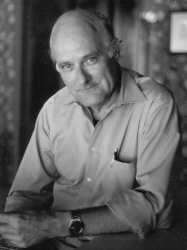
FrontPage's Spitballs Strike Diana West by EDWARD CLINE August 12, 2013
There is a firestorm occurring on FrontPage over a purported review of Diana West's American Betrayal: The Assault on Our Nation's Character, written by Ronald Radosh. Radosh penned a "review" which questioned the reasoning and scholarship of West's contention that Franklin D. Roosevelt consciously, or by subtle policy, boosted the fortunes of Stalin's Soviet régime to profit from the course of WWII, aided in large part by Soviet agents working within and without the U.S. government, and by Harry Hopkins, FDR's chief advisor and aide for so many years. The title of Radosh's review telegraphs his hostility towards West and her book, "McCarthy on Steroids," and what he plans to say about the book. It is interesting to note that some time has passed since the first reviews of West's book appeared, one on FrontPage itself, written by Mark Tapson in July, whom Radosh does not consider an authority on the subject of Soviet espionage and FDR's complicity in furthering the interests of Stalin and the Soviet Union. Significantly, FrontPage's editors purged, or removed, Tapson's objective, short, and informative review of the West book. It's too late for that, because, speaking for myself, I already have a hard copy of the review, together with its now defunct URL. The text of it can be found here, on West's own blog site. Printed out, it comes to two and a fraction pages. How many reader comments it generated is now unknown. Printed out, Radosh's comes to nearly ten pages. Radosh may as well have written a book. It has generated, to date, 182 reader comments, a good many of them criticizing Radosh for conducting a smear campaign against West or otherwise advising him that he is talking through his former "Red Diaper Baby" hat. Radosh continually accuses West of weaving a "conspiracy theory," when she painstakingly documents every claim, assertion, and conclusion in American Betrayal. Why would the editors remove Tapson's review? Because it contradicts Radosh's in substance and in style, in truth, and in honesty. The removal of Tapson's review speaks volumes about the motives of FrontPage's editors. Instead of issuing a statement to the effect that while they respect Tapson's views on West's book, there is another perspective and here is Mr. Radosh's, and even providing readers to a link to Tapson's review. But to remove a contradictory and controversial article is a confession of intellectual weakness and moral turpitude. The editors do not wish readers to compare the Tapson review with Radosh's. They wish to play Big Brotherish Ministry of Truth games with readers' minds. In his rambling, Alinskyite article, Radosh expects West to have read or consulted every book ever published whose subject was FDR's conscious, insouciant, or unwitting complicity in the preservation of the Soviet Union. He claims she didn't read this or that authority or author. Her knowledge and command of the field of Soviet-American studies ought to have been encyclopedic, and if it wasn't, then, as far as Radosh and his editors are concerned, she should be shot down, discredited, and her work consigned to a dustbin. Reading his purported review, I was constantly reminded of that old legal saw, "When did you stop beating your wife?" "But I never beat my wife." "Prove it." "I can't prove a negative." "Too bad. Let the implied charge be entered into the minds of the jury." "Objection!" "Objection overruled." Reading Radosh's "review," one is first knocked silly by the highly personal animus he nurtures for West. It colors his purported review and does him no favors, and certainly, as West herself points out, does nothing to lend his reputation as a neocon any credibility. I could not shake loose the impression that Radosh was attempting to defend Roosevelt, Harry Hopkins, and even Stalin from West's charges. The invective present in his long screed is demonstrable and there for all to see who choose to see. But rather than attempt to counter Radosh's allegations of West's incompetency and illiteracy - which in itself would require a book-length treatment, something I am not willing to undertake because the soundness and value West's book speak for themselves - I will simply stress that FrontPage's editors have shown their dishonest and manipulative hands by removing Mark Tapson's review. That is an unconscionable and unforgivable journalistic and moral crime. That is a grave enough charge that should weigh heavily on FrontPage's editors. Radosh's purported review may as well have appeared in The New York Times, and we all know how committed that publication is to straight journalism and truth-telling. But, then, we are dealing with Neocons here. Neoconservativism is simply a smorgasbord of supposedly "right-wing" ideologies populated largely by former communists, retired radical left-wing activists, cringing liberals, and even ex-SDS members such as Radosh. It is as philosophically rudderless as traditional as "right-wing" Republican philosophy (provided anyone can find it). As a movement, it is so open-ended it may as well admit Barack Obama and all three Clintons as honorary members. Neoconservatism can accommodate just about every ideology but Islam. Had West written a similar book about the infiltration of our government, military, and other institutions by Islamic supremacists, would Radosh have attempted to pick it apart and wisecrack about West's insufficient scholarly abilities? I'm betting he would. Would the editors of FrontPage have sanctioned it? To judge by their behavior now, I'm betting they would. They've shot their bolt, discredited themselves, and I'll never trust a neocon ever again. Not that I ever did. I have also reviewed West's book on Rule of Reason and Family Security Matters, "The Enemy Inside the Gates," here and here. Judge for yourselves. I have also critiqued another scurrilous review of West's book by Frank Csongo in The Washington Times, "Critical Tunnel Vision at The Washington Times" (June 27th), here. I conclude this defense of Diana West and her book by paraphrasing myself from "The Enemy Inside the Gates": On one hand, the culprits did not value the truth. On the other, they feared its power and went to extraordinary lengths to suppress it, erected ideological barricades to block it from public knowledge, and punished those who spoke the truth or threatened to tell the truth. West's lesson to Americans: Reality can't be redacted, buried, fabricated, falsified, or omitted. And that goes for the editors of FrontPage, as well.
Edward Cline is the author of the Sparrowhawk novels set in England and Virginia in the pre-Revolutionary period, of several detective and suspense novels, and three collections of his commentaries and columns, all available on Amazon Books. His essays, book reviews, and other articles have appeared in The Wall Street Journal, the Journal of Information Ethics and other publications. He is a frequent contributor to Rule of Reason, Family Security Matters, Capitalism Magazine and other Web publications.
http://www.familysecuritymatters.org/publications/detail/frontpages-spitballs-strike-diana-west
Join FSM and stay informed. Get your daily Security Update delivered each day to your e-mail.
Edward Cline From Wikipedia, the free encyclopedia Jump to: navigation, search Edward Cline (born 1946 in Pittsburgh, Pennsylvania) is an American novelist and essayist. He is best known for his Sparrowhawk series of novels, set in England and Virginia before the American Revolutionary War. His other fiction includes one suspense series (featuring American entrepreneur Merritt Fury), one contemporary detective series (featuring Chess Hanrahan, who solves paradoxical murders), and one period detective series (featuring Cyrus Skeen in Nineteen Twenties San Francisco). Cline has also written on freedom of speech and censorship issues for The Encyclopedia of Library and Information Science and The Journal of Information Ethics. He has written numerous feature and cover stories, as well as book reviews, for Marine Corps League Magazine, The Colonial Williamsburg Journal, The Wall Street Journal, and The Intellectual Activist. His article on English political philosopher John Locke was carried in two editions of Western Civilization (McGraw-Hill). His Sparrowhawk historical series is being used in college, high school and middle school literature courses around the U.S., and has a significant foreign following as well, particularly in the United Kingdom. Outside of his work as a novelist, Cline is known for his writings on aesthetics, his defense of capitalism[1] and of free speech, and his criticism of contemporary political trends, and of Islam (and religion in general).[2] MP Publishing, Isle of Man, Great Britain, purcahsed the e-book rights to the Sparrowhawk series in 2007 from MacAdam/Cage Publishing of San Francisco. Consequently, the author no longer retains the electronic" rights to those titles and is not responsible for their e-book contents. As a writer, his strongest influence has been novelist-philosopher Ayn Rand. He has been a guest commentator for Rule of Reason at the Center for the Advancement of Capitalism since 2006.[3] His numerous columns have also appeared on Capitalism Magazine, Family Security Matters, and other blog sites.


